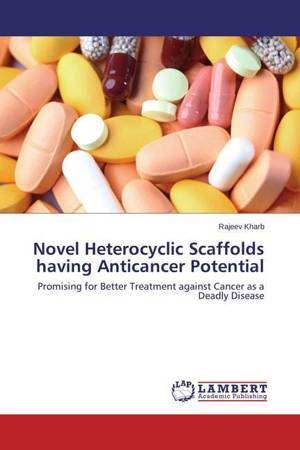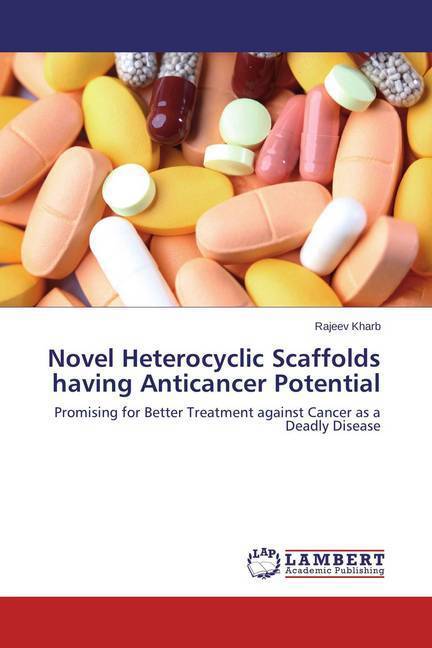
- Afhalen na 1 uur in een winkel met voorraad
- Gratis thuislevering in België vanaf € 30
- Ruim aanbod met 7 miljoen producten
- Afhalen na 1 uur in een winkel met voorraad
- Gratis thuislevering in België vanaf € 30
- Ruim aanbod met 7 miljoen producten
Zoeken
Novel Heterocyclic Scaffolds having Anticancer Potential
Promising for Better Treatment against Cancer as a Deadly Disease
Rajeev Kharb
Paperback | Engels
€ 38,95
+ 77 punten
Omschrijving
Cancer is a serious global health concern as it is a deadly disease being responsible for about 13% of total death tolls globally and at present, cancer is the second leading cause of death in the world after cardiovascular diseases as reported by WHO. Despite advances in cancer research, the overall survival of cancer patients remains low. Inherent and acquired resistance to treatment and the dose-limiting toxicity caused by the narrow therapeutic window of many anticancer drugs are recognized as obstacles for effective treatment of cancer. As per recent literature, it has been found that novel heterocyclic derivatives such as imidazole, triazole, thiazole, benzothiophene, coumarin, furan and isoxazole derivatives as anticancer drugs are lesser toxic, experience lesser resistance from cancerous cells and capable of targeting tumor DNA more specifically as compared to currently used anticancer drugs. Therefore, this communication is an endeavor to update the recent advances and development in the field of cancer research to develop novel anticancer agents for future having better safety and site specific receptors binding for effective treatment of cancer as a deadly disease.
Specificaties
Betrokkenen
- Auteur(s):
- Uitgeverij:
Inhoud
- Aantal bladzijden:
- 76
- Taal:
- Engels
Eigenschappen
- Productcode (EAN):
- 9783659477850
- Verschijningsdatum:
- 11/03/2015
- Uitvoering:
- Paperback
- Afmetingen:
- 150 mm x 220 mm
- Gewicht:
- 122 g

Alleen bij Standaard Boekhandel
+ 77 punten op je klantenkaart van Standaard Boekhandel
Beoordelingen
We publiceren alleen reviews die voldoen aan de voorwaarden voor reviews. Bekijk onze voorwaarden voor reviews.







